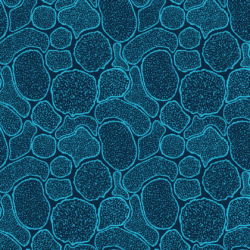August 5, 2021

Lee Hood On Fire: Paradigm-Busting 21st Century Medicine Commonwealth Club Interview
With its main campus located near Delhi’s bustling airport and outposts throughout India, Medanta operates a portfolio of super multispecialty institutes that deliver advanced care to a global clientele. I served on their board between 2014 and 2017.
Medanta’s charismatic founder and chairman is Dr. Naresh Trehan, one of the world’s leading cardiothoracic surgeons. Naresh believes medicine is a business with a soul. He describes western medicine as “outside in,” meaning invasive and reductionist. By contrast, eastern medicine is “inside out,” meaning holistic and integrative. I thought then, and still do, that Naresh’s logic is profoundly insightful.

Medanta, like all other leading global medical centers, practices western medicine almost exclusively. In an animated conversation during cocktails, I challenged Naresh to embrace his vision for blended care delivery at Medanta. I pushed “let’s do both” with Ernie Banks-like enthusiasm. His jocular response was “I’m too busy Dave. You do it for me.”
All kidding aside, integrating homeopathic therapies into treatment protocols represents a major design shift in medical practice. To their credit, Medanta incorporates proven Ayurvedic (traditional Indian medicine) therapies into their protocols with some notable successes. Other leading medical institutions, including the Cleveland Clinic and Northwestern Medicine, have done the same.
Paradigm shift is an overused term. Richard Darman, the OMB Director under George H. W. Bush, used to joke, “Buddy, can you par a digm?” Real paradigm shifts, however, are breathtaking to behold because they fundamentally advance human understanding.
Paradigm shifts require new perspective and energy to envision. The earth was flat until it wasn’t. Promoting paradigm shifts requires courage and determination to combat status quo resistance. The Roman Catholic Inquisition tried and imprisoned Galileo in 1633 for asserting the earth revolved around the sun. Status quo opposition can be particularly virulent in medicine which historically has been slow to adopt change.
I recalled my “let’s do both” exchange with Naresh while watching Dr. Leroy Hood’s riveting session at the Commonwealth Club of California, first broadcast on May 19, 2021. The title for Lee’s program was “The Science of Wellness–And You.” Dr Robert Lee Kilpatrick interviewed Lee as part of the Commonwealth Club’s “Healthy Society” series.
In changing the way medicine understands disease progression, Lee outlines a bold new paradigm for “21st Century Medicine.” His core concept is that a scientific approach to wellness will detect and stop most diseases before patients exhibit symptoms. The application of Scientific Wellness within medicine has the potential to extend human longevity and improve life quality markedly.
20th Versus 21st Century Medicine
Not dissimilar from other wealthy nations, the United States devotes almost all its healthcare expenditure to treatment. America spends less than 3% of its healthcare expenditure on prevention. This expenditure pattern occurs despite a basic truth: preventing disease generates far better outcomes at a fraction of the cost than even the best therapeutic interventions.

Imagine a medical system that invests resources to advance wellness. Such a system would reverse or slow disease before it manifests. It would promote wellness by employing individualized genomic, epigenomic, proteomic and phenome profiling to assess human well-being continuously throughout our lifetimes. It would cost far less. This is Lee’s vision for 21st Century Medicine.
To appreciate the scope of Lee’s vision, it is essential to compare and contrast the new Scientific Wellness paradigm with the current treatment-centric paradigm for “modern” medicine that originated with the Flexner revolution in the early 1900s.
- 20th Century/Modern Medicine applies evidenced-based therapies to treat specific diseases and injuries once symptoms appear. Medical research applies randomly controlled trials (RCTs) to validate treatment efficacy. This approach has led to majestic treatment breakthroughs, particularly for infectious diseases. Medical science also relies on the collective experience of medical outcomes (observational evidence) to refine treatment protocols and improve their effectiveness.
- Both RCTs and observational evidence identify therapies that work for the greatest number of patients and apply them broadly. Modern medicine struggles to accommodate the wide variation and diversity in human biology. Not all therapies work for all people and side effects are a serious concern.
- 21st Century Medicine, by contrast, is predictive, preventive, personalized and participatory. This “P4 Medicine” develops individualized “N-of-1” programs to optimize lifestyle behaviors, promote wellness and treat disease. Longitudinal assessments of an individual’s blood analytes, gut microbiome, cognitive brain measurements and digital health enable precise and comprehensive “N-of-1” profiling.
- With these deep longitudinal profiles of individualized phenomes, medicine can “go upstream” identifying pre-disease markers and intervening much earlier to reverse or slow disease progression. In this sense, 21st Century Medicine accommodates biological diversity. It delivers precise, not generalized, treatments that optimize efficacy and minimize side effects.
- At its most effective, engaged individuals in partnership with their health coaches monitor their phenotypic data and adapt lifestyle behaviors (nutrition, exercise, sleep) and therapies (supplements) to optimize their wellness over long life spans.
More importantly, 20th Century/Modern Medicine lacks the understanding and tools necessary to address humanity’s biggest healthcare challenge. Complex conditions, including chronic diseases, pose an existential challenge for healthcare.
According to the CDC, 90 percent of U.S. healthcare expenditures fund treatments for individuals with chronic and mental health conditions. Despite this massive expenditure, chronic disease is exploding. Current protocols treat the symptoms of chronic conditions, not their root causes.
Successful treatment of complex conditions, including most chronic diseases, requires multimodal lifestyle and therapeutic interventions. Predictive, preventive, personalized and participatory P4 medicine accommodates complexity and multimodal therapies by design. It offers medicine a blueprint for more efficient application of diagnostics and treatment to prevent and manage complex conditions. This is 21st Century Medicine in action.
Health trajectories encompass the movement from wellness to disease over time. Most diseases are present in the body years before their symptoms present. Until now, medicine has been unable to identify early markers for specific diseases and respond with more effective, less invasive interventions. 21st Century Medicine makes this possible.
In addition, deep phenotypic disease knowledge will enhance medicine’s ability to test interventions (e.g., drugs) on exactly the right people. Bringing the right people into decentralized trials will dramatically increase their timeliness and effectiveness and lowering trial cost.
The Beyond Human Genome (BHG) Project
Lee is working to realize the paradigm-busting potential of 21st Century Medicine through the Beyond Human Genome Project. The Project is the research and development enterprise through which 21st Century Medicine will generate the phenomic insights underlying predictive and preventive N-of-1 protocols.
Most of modern medicine’s knowledge about the onset and progression of heart disease emerged from longitudinal observational cohort studies. As a result, medicine is much more effective today at preventing and treating America’s leading cause of death.
The Beyond Human Genome Project will amplify the mechanics of traditional longitudinal studies by incorporating full genomic and epigenomic profiling for a diverse million-person cohort. The Project will continuously assess individual phenotypes for actionable insights on disease origination and manifestation.
Lee’s Institute of Systems Biology (ISB) has already run pilot studies using this approach with very promising results. For example, most individuals with Vitamin D deficiency can achieve normalcy with simple thousand milligram doses. A select few require massive doses that would be toxic to the general population.
Reductive Medicine vs. Integrative Scientific Wellness
Naresh Trehan at Medanta was right about Western medicine’s adherence to reductionist approaches to identifying and treating the specific sources of disease. It’s incredible when that approach works, but catastrophic when it doesn’t.

Alzheimer’s Disease exemplifies the catastrophic societal consequences created by complex diseases. Medicine has no answers for Alzheimer’s. It defies treatment and robs millions of their independence over a prolonged illness period. It causes untold human misery. It consumes vast financial resources. Its prevalence is increasing. Reductive solutions cannot cure complex diseases, like Alzheimer’s.
The pharmaceutical industry has undertaken over 500 clinical trials to find drugs that can successfully treat Alzheimer’s without success. This includes Biogen’s controversial Aduhelm, which the FDA recently approved for expedited use. Despite its enormous cost, there is scant evidence that Aduhelm can improve the lives of Alzheimer’s patients and significant evidence that it will harm many.
In the early 1990s, Lee coined the term “systems biology” to describe the nature of complex conditions (like Alzheimer’s) that defy reductive solutions and require multimodal treatment regimens. In 2000, Lee founded the ISB in Seattle to apply the concepts of systems biology to medicine.
Through the ISB, Lee has originated and advanced the concepts of P4 Medicine, Scientific Wellness and 21st Century Medicine. The ISB has conducted pilot clinical trials incorporating phenotypic data into population cohort studies. Based on his work to date, Lee believes the Beyond Human Genome Project will find very early disease markers for Alzheimer’s within five to ten years that will enable effective interventions for eighty percent of Alzheimer’s patients.
The scientific and popular press enthusiastically report how medicine’s increasing understanding of human genetics and new tools, like mRNA and CRISPR, are combining to create breakthrough vaccines and treatments. Less appreciated is the potential for these scientific advances to revolutionize medicine through scientific wellness.
It’s impossible to restrain a roaring fire. Lee Hood’s passion for 21st Century Medicine is on full display during his Commonwealth Club interview. His accompanying slide presentation details its components and potential. It’s clear that Lee knows how to par-a-digm. Investing several billion dimes to fund his vision for 21st Century Medicine has the near-term potential to radically advance human health and well-being.

Dr. Leroy Hood is a prolific research and writer, who has recently started publishing regularly in the LA Times Second Opinion column. 4sight Health is honored to have him as one of our contributors. We feature the LA Times articles and some of Lee’s other interviews and speeches on the 4sight Health platform. Here are some recent pieces.
- How Science Education Can Stave Off Demagogues (Jan 2021, first in published in LA Times)
- The Science of Wellness (March 2021, originally published in LA Times)
- Long-Haul COVID: Real, Complex and Challenging (April 2021, first publisched in LA Times)
- Alzheimer’s Disease: My Personal Journey and Search for a Cure (June 2021, first published in LA Times)





